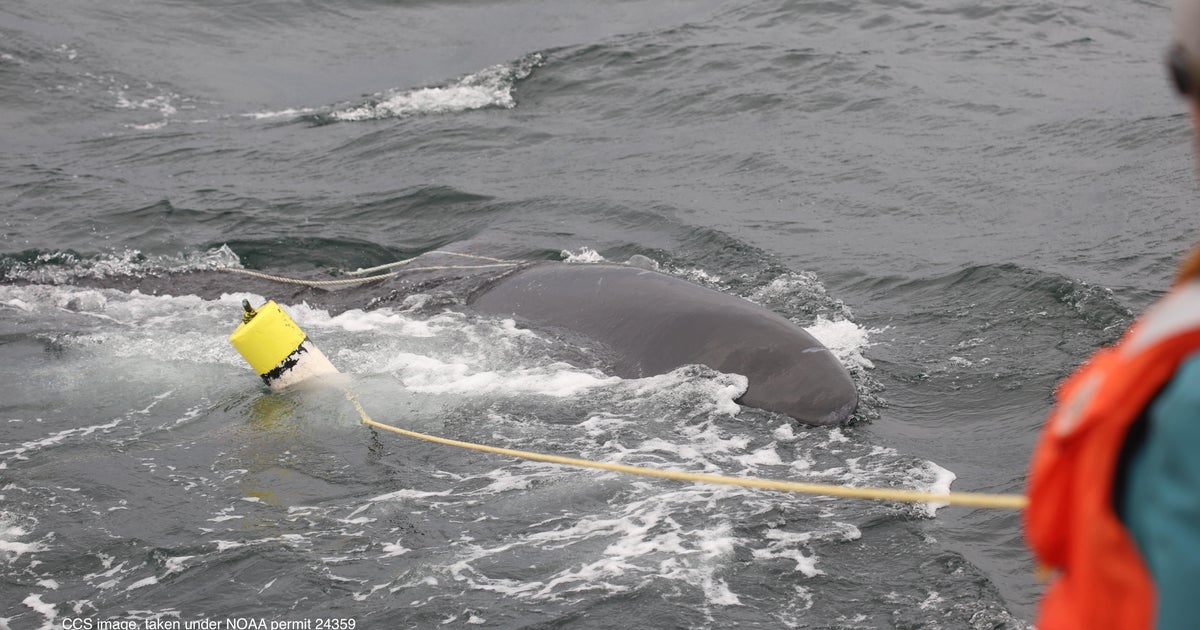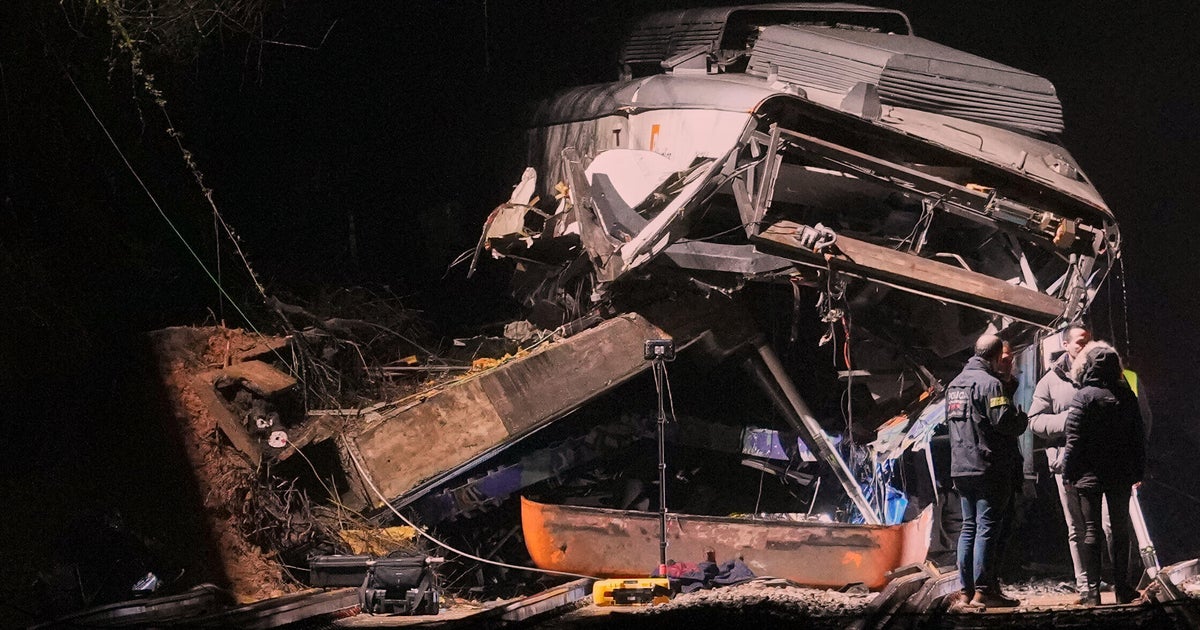Killer whales are ramming into boats and damaging them. The reason remains a mystery.
Reports of killer whales appearing to try and capsize boats off the coast of Spain and Portugal have raised questions about the giant sea creatures and the motive behind their erratic actions. The behavior is unusual, and began in 2020, says Andrew W. Trites, professor and director of Marine Mammal Research at the University of British Columbia.
In the past two years, these incidents have more than tripled according to data released by GTOA, a group that researches orcas in the region.
"Nobody knows why this is happening," Trites told CBS News. "My idea, or what anyone would give you, is informed speculation. It is a total mystery, unprecedented."
Trites said there is no doubt whales are damaging boats and terrifying the people on board, but the reason is a mystery. He said, however, there must be something positively reinforcing this behavior and the benefits for the whales outweigh the cost.
Only a small group of killer whales, also called orcas, is showing the behavior of ramming into boats, including yachts and sailboats, and it appears the action is spreading through their population. Trites said in 2011, there were only about 39 whales in the small group.
The whales are seen near Spain and Portugal, often in the summer, and dozens of people have reportedly witnessed this behavior.
Last week, a group of killer whales broke the rudder and pierced the hull of a sailboat in the area. The crew of four onboard needed to call authorities for help and we were rescued, Reuters reports. Their boat was towed back to the port for repairs. Earlier this month, three orcas impacted a sailing yacht. The boat was so flooded after the incident that it could not be towed back.
This is just one of about 20 instances recorded in the area this month by GTOA, a group that researches orcas in the region. The Spanish Transport Ministry has advised boaters should leave the area if they observe a change in an orca's direction or speed and should report any interactions, according to Reuters.
GTOA says 52 interactions were recorded between the Strait of Gibraltar and Galicia in northern Spain between July and November 2020. The following year saw 197 interactions and in 2022, there were 207 interactions. The incidents primarily affect sailboats, GTOA says.
A study on the disruptive behavior of killer whales was published in 2022. Alfredo López Fernandez, co-author of the study, told Live Science said most of the interactions have been harmless, but at least three ships have sunk since the behavior started in 2020.
López Fernandez, a biologist at the University of Aveiro in Portugal, who also works at GTOA, told Live Science the origin of this behavior is unknown. And while there are some reports speculating orcas are teaching each other, he says the behavior may just be spreading to young orcas because they are imitating older orcas.
Trites doesn't think the incidents are attacks, and while some speculate the whales may be "retaliating," he doesn't believe that theory. "I read that something triggered one of the adult females and she is exacting revenge and teaching the others to do that too by ramming vessels and trying to intentionally sink them," he said. "To ram a vessel makes as much sense as me running full speed into a brick wall. You're going to get injured."
He said he doesn't believe this idea, or the theory that whales are mad that there are too many boats in the ocean. His theory? "I think it's just playful behavior that's gotten way out of hand," he said.
Trites said whales do not eat humans and there are no reports of them attacking any humans. However, this behavior change in the whales is dangerous and could result in a boater being killed.
He said the behavior reminds him of a whale named Luca, spotted off the coast of Vancouver, who separated from his pod and began to follow boats. "He later learned to grab onto the rudders to break them off to disable the boats, to push boats around," Trites said. "In his case, he was seeking social interactions. And he learned he could prolong the interactions by disabling the boats. And then they would have to stay with him."
Trites said killer whales are social, tactile animals. Some like to rub their bodies together while swimming together or ride the wake of boats and feel the sensation of the water pushing them. "I know of many cases where killer whales will come in and almost put their nose up to a propeller of the boat and feel the wash of the water go over them. It'd be like being in a jacuzzi," he said.
Trites said some of the reports from Spain and Portugal are consistent with this behavior – whales putting their noses up to the back of the boat.
"It's a bit hard to know what to make of the accounts because if a researcher who understands killer whale behavior was on board, they may describe it in a different way," he said, adding that while some boaters may feel attacked, a researcher might characterize it as a whale simply rubbing against a boat.
"The positive in here could be from roughhousing with something else – they certainly rough house among themselves – tactile, touching – we know killer whales rake their teeth over the body of another whale – all of this could be behaviors they are turning toward some boat and finding they are getting pleasure out of doing that."





